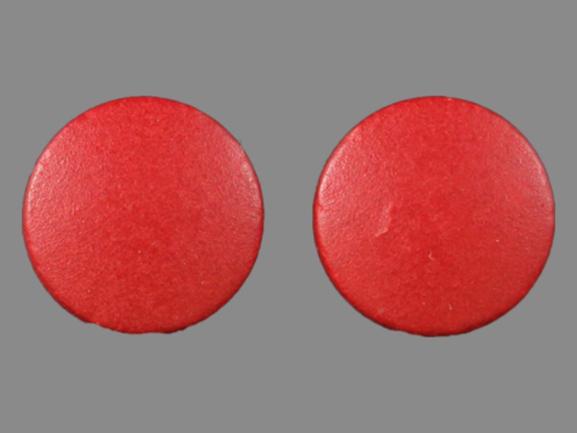Ferrous sulfate Disease Interactions
There are 3 disease interactions with ferrous sulfate.
Ferrous salts (applies to ferrous sulfate) hemoglobin abnormalities
Major Potential Hazard, High plausibility. Applicable conditions: Hemoglobinopathy, Blood Transfusion
There is no excretory mechanism for iron. Iron will correct only hemoglobin abnormalities due to iron deficiency and should not be used to treat conditions such as thalassemia, hemosiderosis, hemochromatosis, normocytic anemia (unless iron deficiency exists), or in patients receiving blood transfusions. Clinical monitoring of erythropoietic function and ferritin levels is recommended.
Ferrous salts (applies to ferrous sulfate) achlorhydria
Moderate Potential Hazard, Moderate plausibility.
Gastric acidity increases iron bioavailability by maintaining the ingested iron in a reduced form as ferrous ions, which are more readily absorbed than ferric ions. Therefore, when iron therapy is administered orally, higher dosages may be necessary for patients with decreased gastric acid production. Also, a liquid formulation is recommended in these patients because dissolution of the tablet coating depends on normal gastric acidity.
Ferrous salts (applies to ferrous sulfate) gastrointestinal irritation
Moderate Potential Hazard, High plausibility. Applicable conditions: Colitis/Enteritis (Noninfectious), Peptic Ulcer
Iron can be irritating and damaging to gastrointestinal mucosa. Iron therapy should be administered cautiously in patients with peptic ulcer disease, enteritis, or ulcerative colitis.
Switch to professional interaction data
Ferrous sulfate drug interactions
There are 87 drug interactions with ferrous sulfate.
Ferrous sulfate alcohol/food interactions
There is 1 alcohol/food interaction with ferrous sulfate.
More about ferrous sulfate
- ferrous sulfate consumer information
- Check interactions
- Compare alternatives
- Reviews (47)
- Drug images
- Side effects
- Dosage information
- Patient tips
- During pregnancy
- Support group
- Drug class: iron products
Related treatment guides
Drug Interaction Classification
| Highly clinically significant. Avoid combinations; the risk of the interaction outweighs the benefit. | |
| Moderately clinically significant. Usually avoid combinations; use it only under special circumstances. | |
| Minimally clinically significant. Minimize risk; assess risk and consider an alternative drug, take steps to circumvent the interaction risk and/or institute a monitoring plan. | |
| No interaction information available. |
Further information
Always consult your healthcare provider to ensure the information displayed on this page applies to your personal circumstances.


